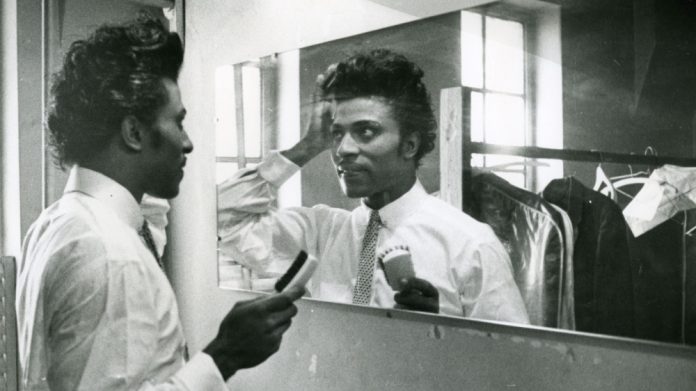Lisa Cortés executive produced the acclaimed film Precious, produced the Emmy Award-winning documentary The Apollo, and co-directed the 2020 documentary All In: The Fight for Democracy. Now, for the first time, she assumes the role of solo director for her latest documentary, Little Richard: I Am Everything.
Now playing in theaters, I Am Everything traces Richard Penniman‘s life and far-reaching influence by examining his music, his sexuality, and his spirituality. Interviewees such as Billy Porter, Nile Rogers, Nona Hendryx, Tom Jones, and Mick Jagger help to contextualize Little Richard’s life and career.
Below the Line recently up with Cortés via Zoom for an extensive conversation about her career, I Am Everything, and her upcoming projects. Here’s what she had to say:

Above the Line: How and when did you discover documentaries?
Lisa Cortés: I would like to say that I discovered them through the Wonderful World of Disney as a child, with Sunday night nature docs. That planted a seed for me. When I was an undergrad and in college, studying with people like Michael Roemer, I certainly was introduced to great docs at that time also, but I always think about that — Sunday night [with] Wonderful World of Disney.
ATL: What do you think are the hallmarks of a great documentary?
Cortés: You discover something you haven’t. You go in with an expectation of what the story is and it is revelatory. And [also] that what you learn is not about hagiography, but about interrogation. And, hopefully, a great documentary will be immersive.
ATL: What made Little Richard the right subject for a documentary?
Cortés: One, the story hadn’t been told, so it was fresh terrain to look at. It’s also very daunting because there’s so much to look at. But for me, with Little Richard, my entry point was the music. Then I started looking at the cultural repercussions [from] his very act of arriving on the scene the way that he did and what he declared; what he introduced into our cultural tapestry of what was possible, what was allowed, and how — through his voice and performance — he changed cultural perceptions.
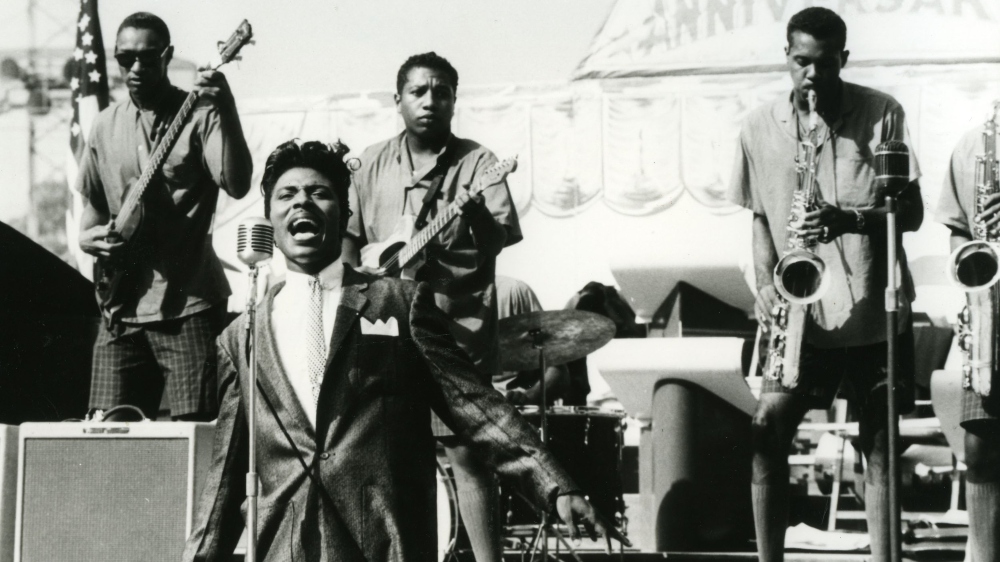
ATL: What’s your sense of his importance to the African American and Queer communities, both back when he started and now that he’s no longer with us in the flesh?
Cortés: If we go back to 1955, he’s having huge hits. On the race charts, he’s huge. He is also performing and bringing this explosive presence to black and white audiences, and in some cases, bringing those audiences together. He’s in these rock and roll films that are being seen, not only in the U.S. but across the world. In many ways, he isn’t appreciated as a cultural ambassador. For some more conservative people, they might not be embracing him, but he is incredibly liberatory by his very presence.
Now, we see him through a different and broader lens. We see that — in 1955 — it is pretty bold and amazing to declare your agency, to declare that you are a creator, at a time when Emmett Till is murdered for whistling at a white woman. We see the courageousness of Little Richard, with his pompadour and pancake makeup, [and] with this music that is not Gospel. It’s devil music. He should be applauded for his audacity and embracing of so many different musical [genres] in his background to create something that was his own. The recognition of his ownership, of his IP, is especially poignant for us now.
ATL: Mick Jagger initially offered to give you 20 minutes of talk time and it went an hour. And he chatted with you for a while before the camera rolled as well, from what I understand. What were your takeaways from spending time with Jagger?
Cortés: He was generous from the beginning. When he arrived and we had a conversation, it was special, because it was a moment like, ‘Lisa, what’s the story you’re telling? What’s interesting to you about Little Richard? I want to understand how I fit into this constellation.’ When we started the conversation, he had so many points of connecting with Richard; obviously knowing him, [and] observing Richard as a performer, and incorporating it into his own approach to rock and roll. From the latter part of the conversation, after the 20-minute marker, what I loved was being able to spend more time.
I actually pulled out my iPad and some performances I’d selected of Richard’s. I pulled out the Rock and Roll Hall of Fame, when Richard is there to induct Otis Redding, but he turns it into an induction for himself. He calls Mick Jagger out, in the audience, as he calls out so many of the other artists who were there, proclaiming how he got them started. Mick Jagger — and you see this in the film — he’s like, ‘It was really sad because they were beholden to him. Richard did not always see that.’ It was touching, and it creates — in the film — a tremendous sense of empathy for Richard.
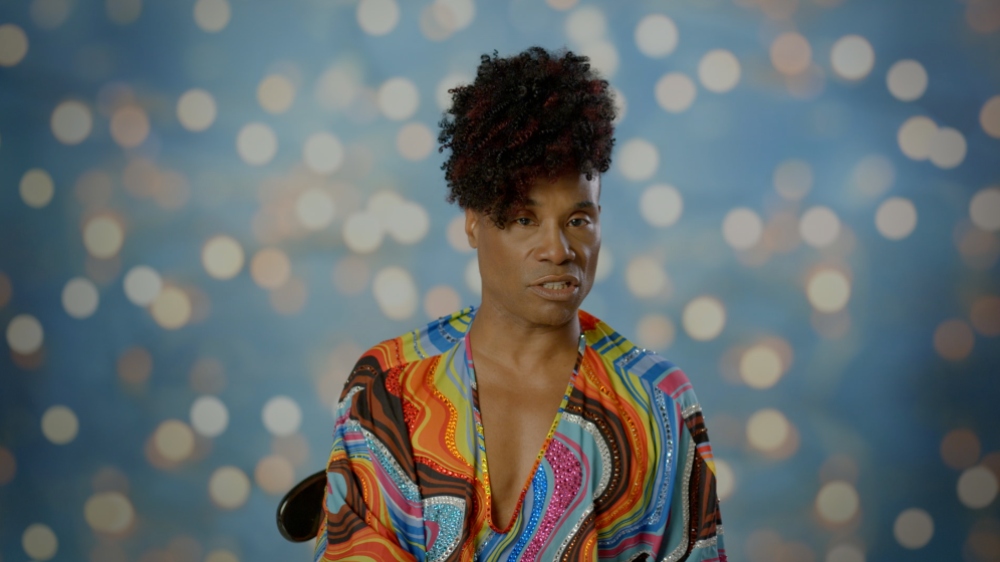
ATL: You never actually met Little Richard. So, from working on the documentary, and separating his talent and determination from the equation, do you think he found fame because of or despite his flamboyance? Did that somehow make him “safe?”
Cortés: It did not. [His] flamboyance propelled his fame. It’s the musicality, the innovation, and the voice. The flamboyance is like icing on the cake. If you didn’t have the structural integrity of what Richard brought as an artist, lyricist, and as a musician, with [the] flamboyance, he would have flamed out very quickly.
ATL: If you played a Little Richard record, you didn’t know what he looked like…
Cortés: Exactly. Here’s the famous story about Little Richard. “Tutti Frutti…” He has these hits. He moves to Los Angeles, but wait a minute, he’s got a whole bunch of tour dates, and he says to a young musician, who he has brought to Macon, Georgia, “They don’t know what I look like. You can go out and perform as me.” That young musician was James Brown. People didn’t know what Little Richard looked like! They never saw him. They knew a 45 on Specialty Records.
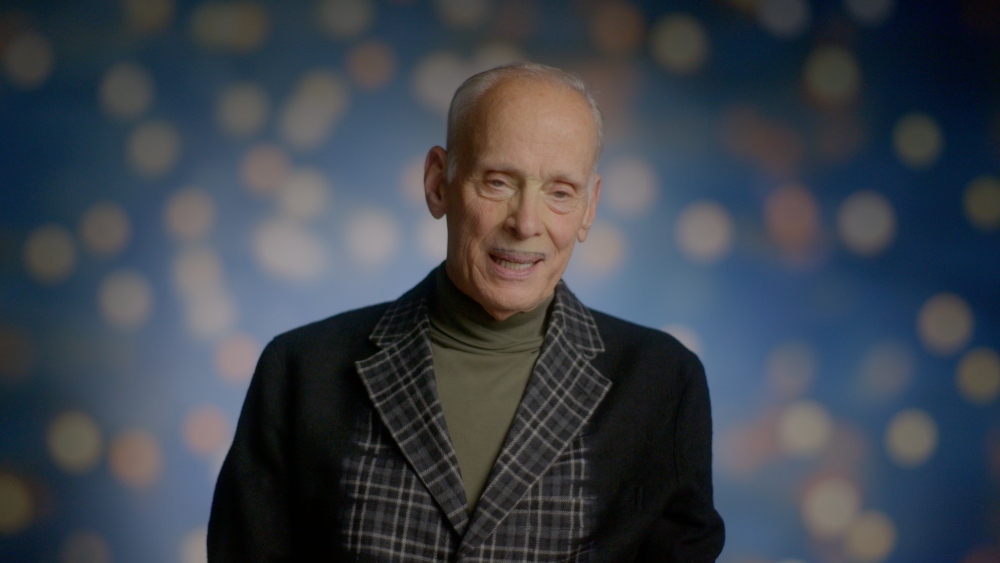
ATL: As the film came together, what were you most surprised to learn about the man? Was it like he was talking to you and telling you the story?
Cortés: I certainly heard his voice louder and clearer as we were making this film because we spent so much time with archival materials, and then I was always reading supplementary articles that other people had written. You cannot deny his voice. Whether it’s him as a storyteller or him as a musician, it gets into your soul, you know? And I love the story of Little Richard when he goes on the chitlin’ circuit and becomes Princess Lavonne.
ATL: What was it like for you to fly solo as a director?
Cortés: Obviously, all one’s experiences prepare them for this moment. Starting this during the pandemic, finishing a very intense film like All In: The Fight for Democracy, looking at the long struggle for voting rights, this story was a balm to engage with because of my joy of music, of beautifully human complicated characters, and also of making certain that this history and this recognition of these queer artists is not obliterated — that it is made a part of the record because they are a part of the record.
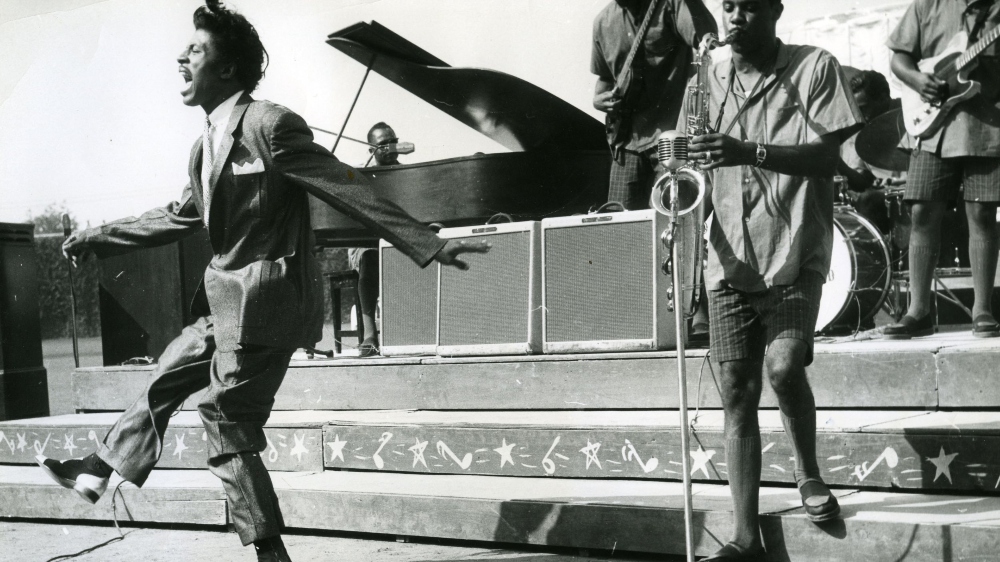
ATL: Many young artists today may not even have a clue who Little Richard was, or they only know him by name. They may even be influenced by him without knowing it because they’re influenced by artists who themselves were influenced by Little Richard. That’s the amazing part, to me. How sad and frustrating is it that even in the community, a lot of people don’t know who he is, what he was, or the trails he blazed for them? And how hopeful are you that people will see this film and maybe learn a thing or two about him?
Cortés: Our team has done an incredible job of exposing this film to a lot of young artists who respond that they are so grateful to know of the innovation and everything that came from Richard. It is a very intergenerational film because the themes that we’re looking at are ones that are contemporary. I love it when someone like Kendrick Lamar watches this film and appreciates it as much as someone like Chuck D or the incredible R&B artist Kem. I love when I get texts from these artists about how it really is very grounding for them, and they think it’s important that this history is told.
ATL: We’re about to run out of time. So, let’s quickly get updates on some of your upcoming projects, which include a development deal with the Museum of the City of New York, plus the films The Empire of Ebony, The Space Race, and Invisible Beauty.
Cortés: My production company, Cortés Filmworks, has a first-look [deal] with the Museum of the City of New York to develop so many of the incredible exhibitions that they’ve created into series or feature-length docs. They are all New York stories but about a broad range of themes. The Empire of Ebony started out as a feature doc, and I realized that the story was so big — of Johnson Publishing, the media empire that they built, and how they changed representation — that we were able to morph it from a feature into a three-part series, which will be on a streamer. And it will be announced soon who our partner is.
The Space Race, the story of African American astronauts from the early ’60s, when the first candidates arrived to the actual men who rode on the shuttle, that’s a film for National Geographic, and we will see it soon. Invisible Beauty is the story of Bethann Hardison, the model, the muse, and activist in fashion and for representation. I was a producer of that and we’ll be announcing our distribution deal soon. [I’m involved in] a lot of great films about these icons who are directly in conversation with what is happening now. The past is a prologue for this moment in time. That is a guiding principle in all of my work.
Little Richard: I Am Everything is now playing in theaters courtesy of Magnolia Pictures.


